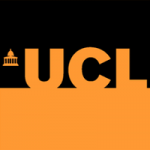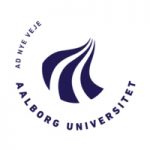项目介绍
Overview
Our graduate programmes are internationally recognised and draw on advances in life sciences and the core discipline of biochemical engineering. We maintain close teaching and research links with other highly rated UCL departments and with experts from other departments throughout the UK and overseas, and are also involved in close collaborations with industry. This vibrant department leads in the field and offers an exciting graduate training and research environment. Independent assessments confirm the excellence and breadth of the department’s taught programmes (IChemE accredited) and place our research programmes at the forefront of international endeavours.
Research areas
EngD Centre research ranges from fundamental studies through to their translation and impact on clinical and commercial practice. Research is structured across five main areas:
- High throughput bioprocess design: the creation of single-use, automation and microfluidic technologies to give fundamental insights into bioprocess design and scale-up
- Industrial biotechnology: biocatalysis for the sustainable synthesis of chemicals and pharmaceuticals from renewable resources
- Macromolecular medicines: the manufacture of advanced biopharmaceutical therapies including antibodies, genes and recombinant vaccines
- Regenerative medicine: the translation of stem cell science into novel cell and tissue-based therapies
- Synthetic biology: the rational engineering of biological systems to deliver new safe, efficient and sustainable bioprocess options.
More information can be found on the department website: Biochemical Engineering and Bioprocess Leadership EngD
About this degree
The EngD is a research degree, equivalent to a PhD, with an additional training element designed to develop sector-specific skills and prepare graduates for leadership positions within the bioindustry sector. All projects are industry collaborative with up to 75% of the researcher’s time being spent with the sponsoring company.
The programme consists of seven core modules that address research and professional skills specific to the sector:
- Design of Experiments and Bioprocess Data Mining
- Biomolecular and Cellular Analysis
- Pilot Plant Project
- Pilot Plant Unit Operations
- Responsible Innovation (RI) in Healthcare
- Transferable Skills in Bioprocess Research and Development
- Research Skills
- There is also a major research project element that provides the basis for year one assessment and progression. The research project is closely related to the cutting-edge research carried out in the department and is performed in collaboration with the industrial sponsor.
In years two to four researchers take a wide variety of optional modules to suit their interests and support their doctoral research project. These address advanced knowledge of the discipline as well as transferable skills and many are taken together with industrial delegates as part of the department’s MBI® Training Programme.
A thesis of a maximum of 100,000 words forms the final part of the EngD training.
Please note that the list of modules given here is indicative. This information is published a long time in advance of enrolment and module content and availability is subject to change.
Additional costs
For more information on additional costs for prospective students please go to our estimated cost of essential expenditure at Accommodation and living costs.
Accessibility
Details of the accessibility of UCL buildings can be obtained from AccessAble accessable.co.uk. Further information can also be obtained from the UCL Student Support & Wellbeing team.
Funding
EPSRC studentships are available to EU and UK applicants. Full maintenance (stipend & fees) is available only to UK or EU students resident in the UK for the three years prior to starting the programme.
Scholarships relevant to this department are displayed below.
CSC-UCL Joint Research Scholarship
Value:Fees, maintenance and travel (Duration of programme)Eligibility:OverseasCriteria:Based on academic merit
For a comprehensive list of the funding opportunities available at UCL, including funding relevant to your nationality, please visit the Scholarships and Funding website.
Careers
Excellent and diverse career paths are available for you. Well over one hundred EngD researchers have graduated to date with 97% progressing to relevant bioindustry careers. Many now hold distinguished and senior positions in the bio/pharmaceutical, chemical, cell therapy and personal care product sectors. The majority are engaged in bioprocess research and development, equipment and software design and manufacturing. Others have followed management and investment careers in the biotechnology field or have established independent academic careers in universities around the world.
Employability
An EngD in Bioprocess Engineering Leadership is ideal for science and engineering graduates who intend to work in the bioindustry sector, or who have yet to decide between an academic or industrial career. Research projects are created in collaboration with individual industry partners meaning that the results of each project have an immediate impact on real-world problems. Close connections with all of our industrial collaborators ensure that you are equipped with leading-edge skill sets that will enable you to tackle the next generation of bioprocess challenges, beyond the scope of your individual project.
Networking
The EngD Centre has extensive collaborative links, both in the UK and internationally, providing unparalleled opportunities for you to network with future academic and industrial. Over one hundred EngD projects have been completed to date with over sixty-five different companies. There is an established network of former UCL EngD graduates many of whom now sponsor current EngD researchers.
Over 70 industrial experts contribute each year to the department’s MBI Training Programme. EngD researchers take these modules as full industrial delegates and the programme is attended by over 150 industrialists annually.
Why study this degree at UCL?
UCL was one of the founding biochemical engineering laboratories and established the first UK university department in the discipline. UCL Biochemical Engineering is a world leader and co-ordinates bioprocess-related activities across the university. In the latest 2014 Research Excellence Framework (REF) assessment, 90% of our research activity was rated either ‘world-leading’ or ‘internationally excellent’.
The department has outstanding facilities following capital investments worth over £30 million in recent years. These include a full-scale bioprocess pilot plant and new laboratory suites for synthetic biology, stem cell and virus bioprocessing research. Researchers have access to further resources across UCL, which was the top-rated university in the UK for research strength in the latest REF.
The EngD Centre has received continuous support since 1999 and is a national focus for bioprocess research and training. Researchers at the centre are embedded within a vibrant research community of over 100 doctoral and postdoctoral researchers.
Department: Biochemical Engineering
What our students and staff say
Student review
“I like how industry-relevant my project is and the support that I receive from my industrial company. It provides me people who are experts and always helpful in providing advise. As well facilities and equipment such that I can ensure my research aligns with industrial capabilities.”
SHEUN OSHINBOLU
Biochemical Engineering and Bioprocess Leadership EngD
Application and next steps
Applications
Students are advised to apply as early as possible due to competition for places. Those applying for scholarship funding (particularly overseas applicants) should take note of application deadlines.
This programme requires two references. Further information regarding references can be found in our How to apply section.
Application deadlines
All applicants30 July 2021
Applications are considered throughout the year but interviews are generally held in March each year and the start date is usually in September/ October.
For more information see our Applications page.
录取要求
-
A minimum of an upper second-class UK Bachelor’s degree, or a UK Master’s degree, in life or physical sciences or engineering, or an overseas qualification of an equivalent standard. Relevant industrial experience can also be considered.
联系方式
电话: +44 (0) 20 7679 2000相关项目推荐
KD博士实时收录全球顶尖院校的博士项目,总有一个项目等着你!





